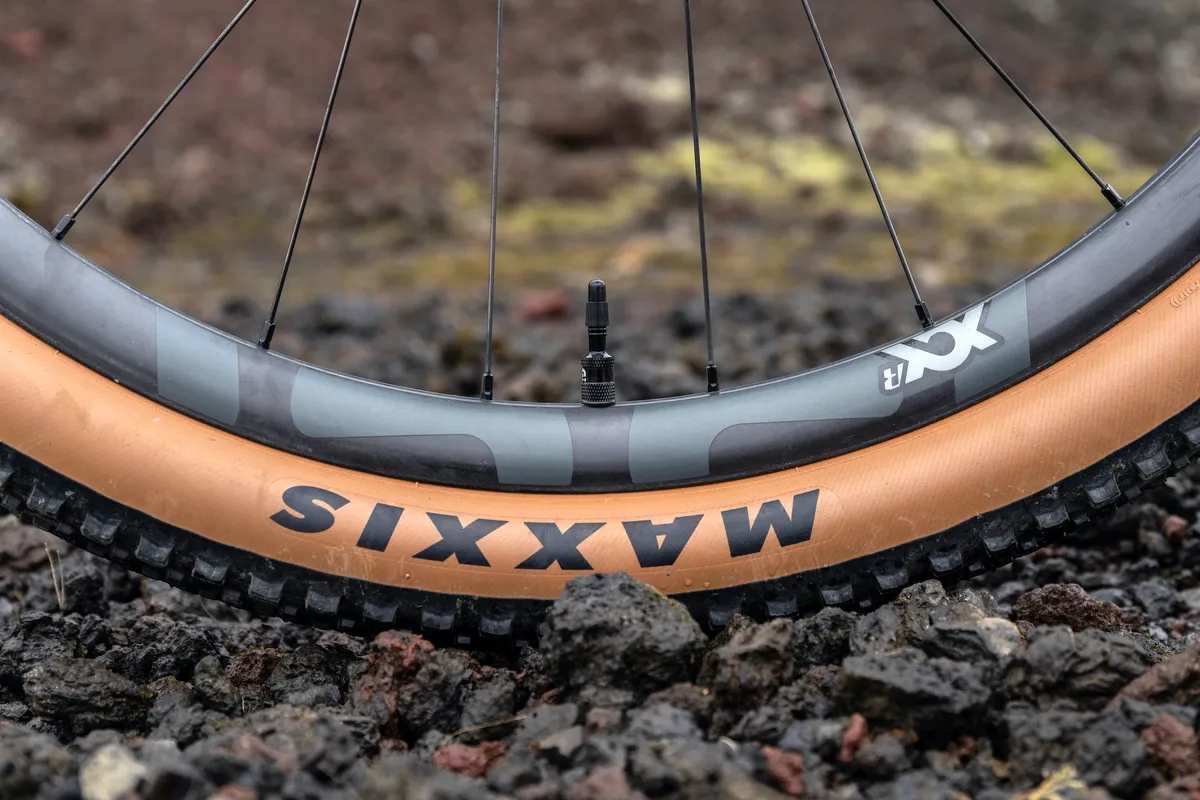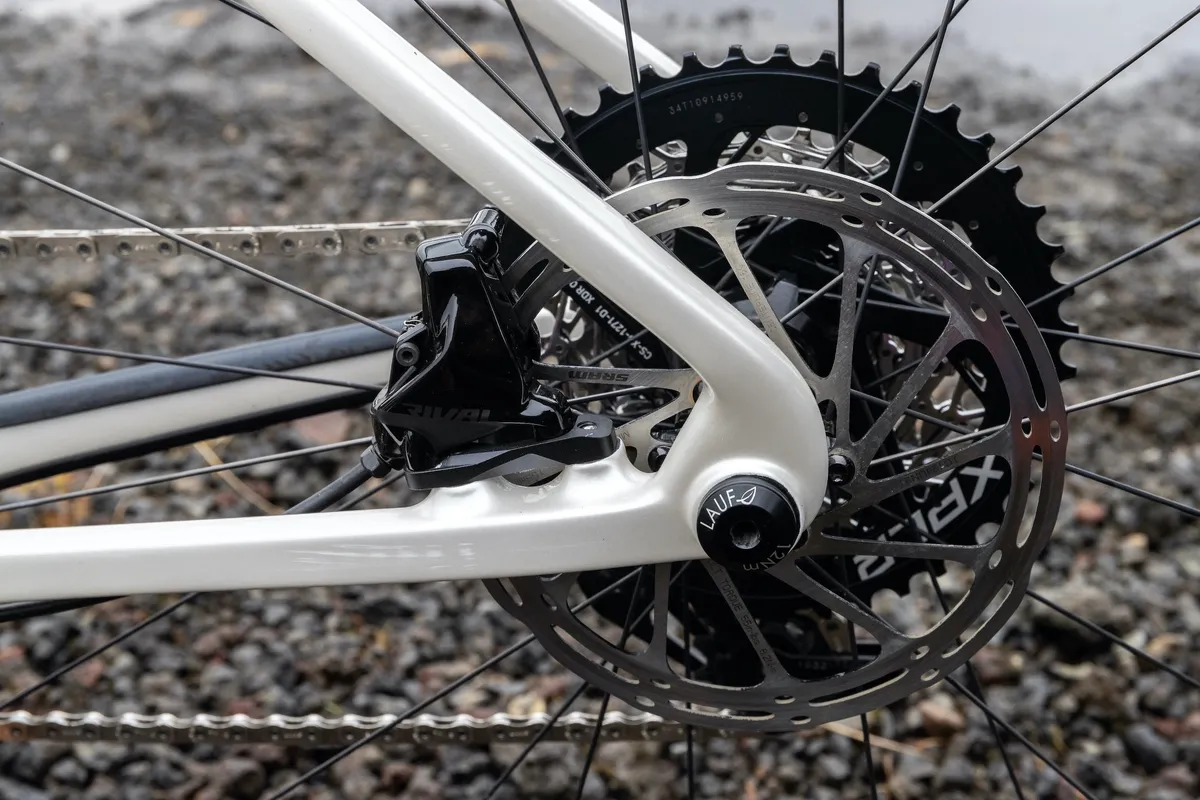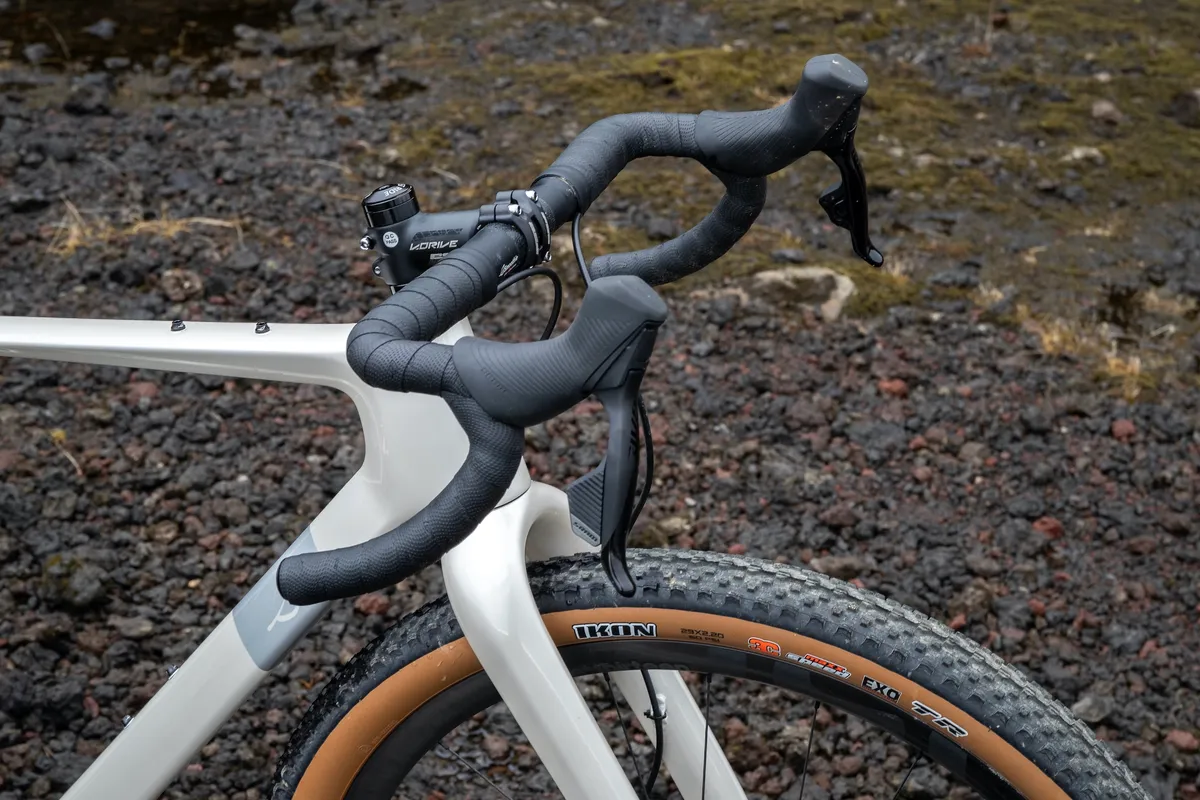Lauf has released a new gravel bike, called the Seigla. It’s an evolution of the brand's True Grit gravel bike, and features much improved tyre clearance and dropped stays that give around 4mm of vertical displacement when it hits a bump in the (gravel) road.
In recent years, Lauf has teased us with patents for a full-suspension gravel bike, using glass-fibre leaf-sprung technology, similar to that seen on its Grit SL fork. This bike is still some time away, but the Seigla represents the fruit of the development process of the full-suspension concept.
The Lauf Seigla sees some significant changes from the True Grit, while retaining many of the bike’s other features. The changes are in response to the development of gravel riding as a distinct and varied cycling discipline.
Despite improved compliance, the Seigla is still a ‘race’ bike, and Lauf wanted to maintain the same geometry and handling characteristics of the True Grit with the new bike. As such, don’t expect a multitude of bag, rack and fender mounts, or dropper-post compatibility.
The True Grit will remain in Lauf's range, for a while at least, as will the rigid Lauf Anywhere.
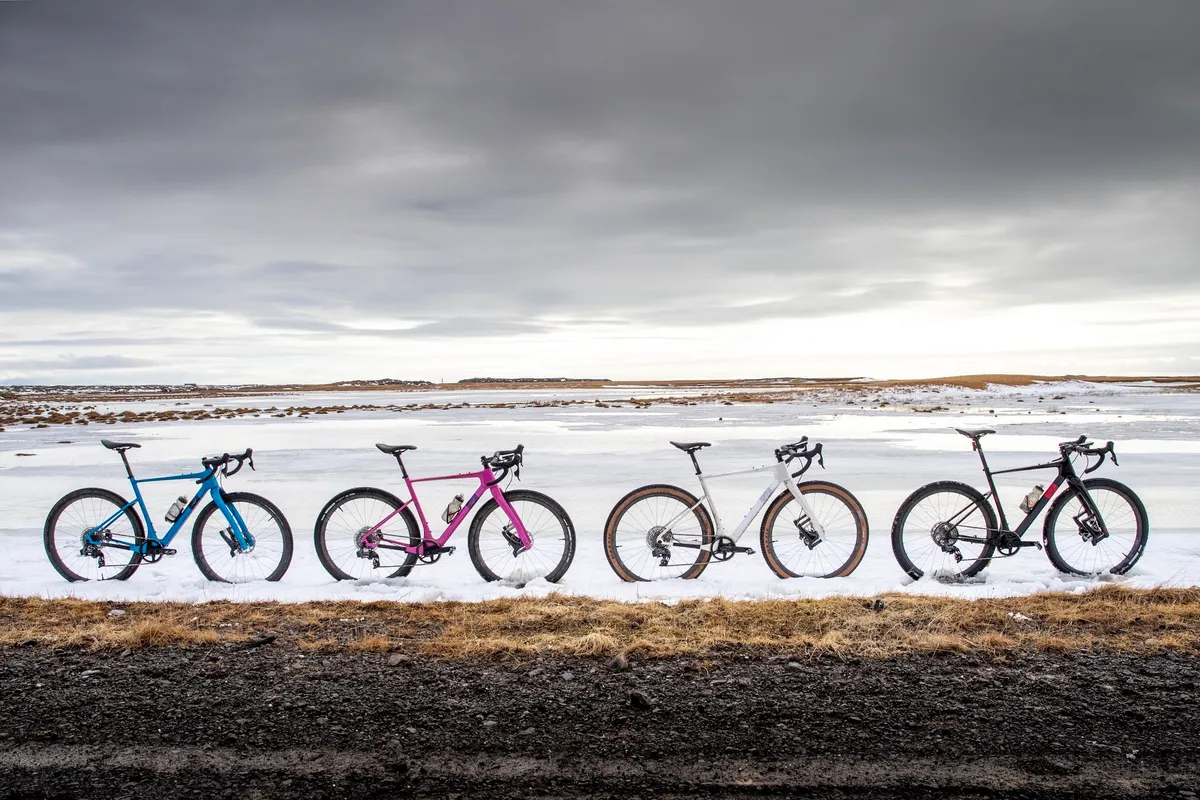
Lauf Seigla key details
The Seigla frame differs completely from the True Grit, with Lauf redesigning the chassis from the bottom up. A medium frame, painted black, with hardware and axle, weighs 1,163g +/- 50g.
More room for rubber
First and foremost, in our eyes, is the increase in tyre clearance at the rear. This was one of our major criticisms of the True Grit, because clearance was limited to 45c rubber, compromising both mud clearance and comfort. It has also been fairly well accepted that in many circumstances, wider tyres can be faster.
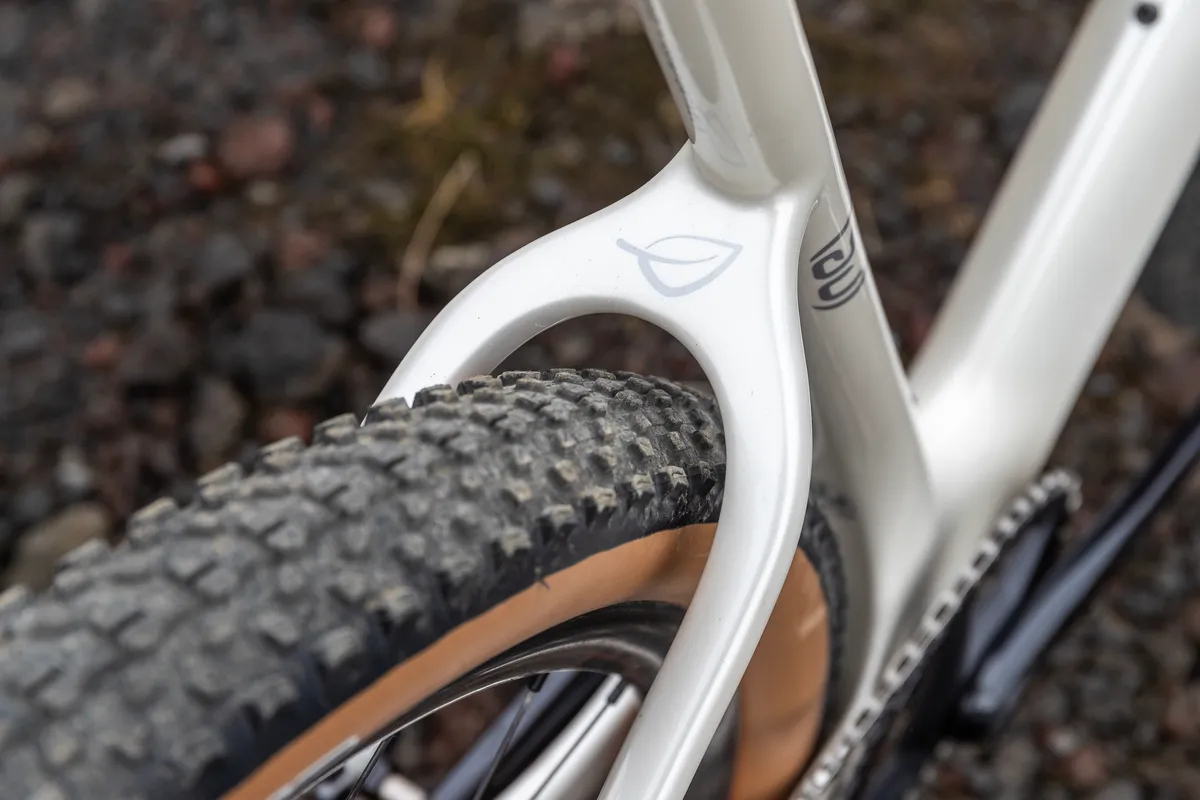
Lauf has opted to use a BSA 73 bottom bracket shell, rather than the usual BSA 68.
It has also drastically altered the shape of the chainstays as they leave the bottom bracket area, with a deep but narrow carbon plate offering all the strength necessary, while allowing wider tyres. This plate is only 6mm thick, yet it's solid carbon fibre, and as such, should be resistant to damage from dropped or sucked chains.
The chainstays have not been elevated, either. Lauf explains that doing this can compromise their compliance, especially if only one side is dropped, and that the straighter tubes are stronger, with better fibre flows.
As such, bikes are now rated to 700 x 57c or 29x2.25in tyres.
None of this has been done at the expense of chainstay length, though, with the Icelandic brand retaining the much shorter than average 425mm chainstay length on the bikes.
The obvious consequence of moving to a wider BB shell is that crank choice is relatively limited. Lauf requested SRAM build cranks with a longer axle for the bikes, and as such, the Q-factor (distance between the pedals) is increased by 5mm.
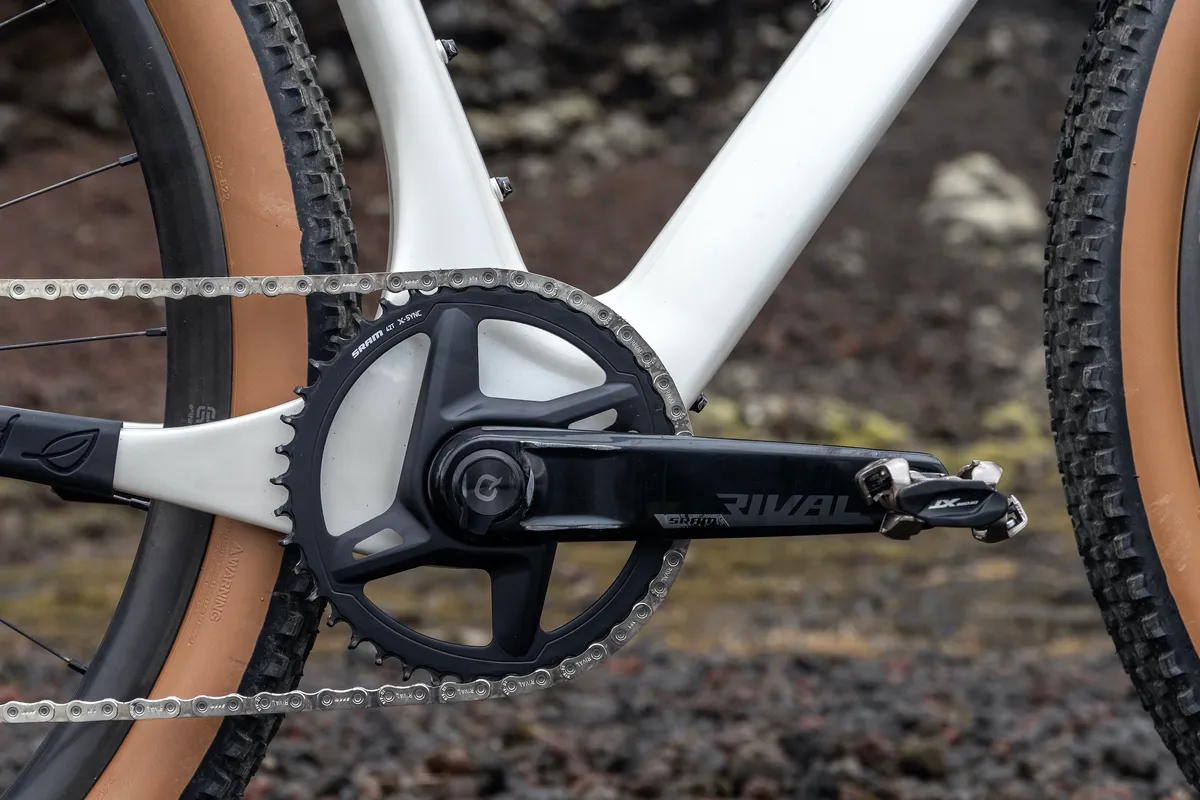
However, Lauf points out that it's still narrower in Q-factor than a Shimano GRX crank on a 68mm bottom bracket. It's also thus managed to avoid using mountain bike chainsets, which again, would impact on the Q-factor.
Using the wider bottom bracket shell allows, apparently, for better carbon fibre flows from the bottom bracket to the chainstays too.
The other consequence of the increased tyre clearance is that this bike is only able to accept a single-chainring drivetrain setup. However, with around 90 per cent of True Grit customers opting for a 1x drivetrain already, this is not deemed an issue.
Likewise, the bike is aimed heavily towards wireless drivetrains – 85 per cent of True Grit customers choose SRAM’s wireless drivetrains – and all stock builds will feature SRAM XPLR groupsets.
Wired and mechanical rear derailleurs can be fitted, with the chainstay protector handling cable-routing duties at the rear of the bike.

Softer stays
The next major update is the use of dropped seatstays, giving the rear triangle much more vertical compliance – again, to increase comfort.
The whole architecture of the frame had to be reimagined to achieve this. The chainstays are built to have flex in them, after the broad plate providing tyre clearance has narrowed to a conventional shape and size.
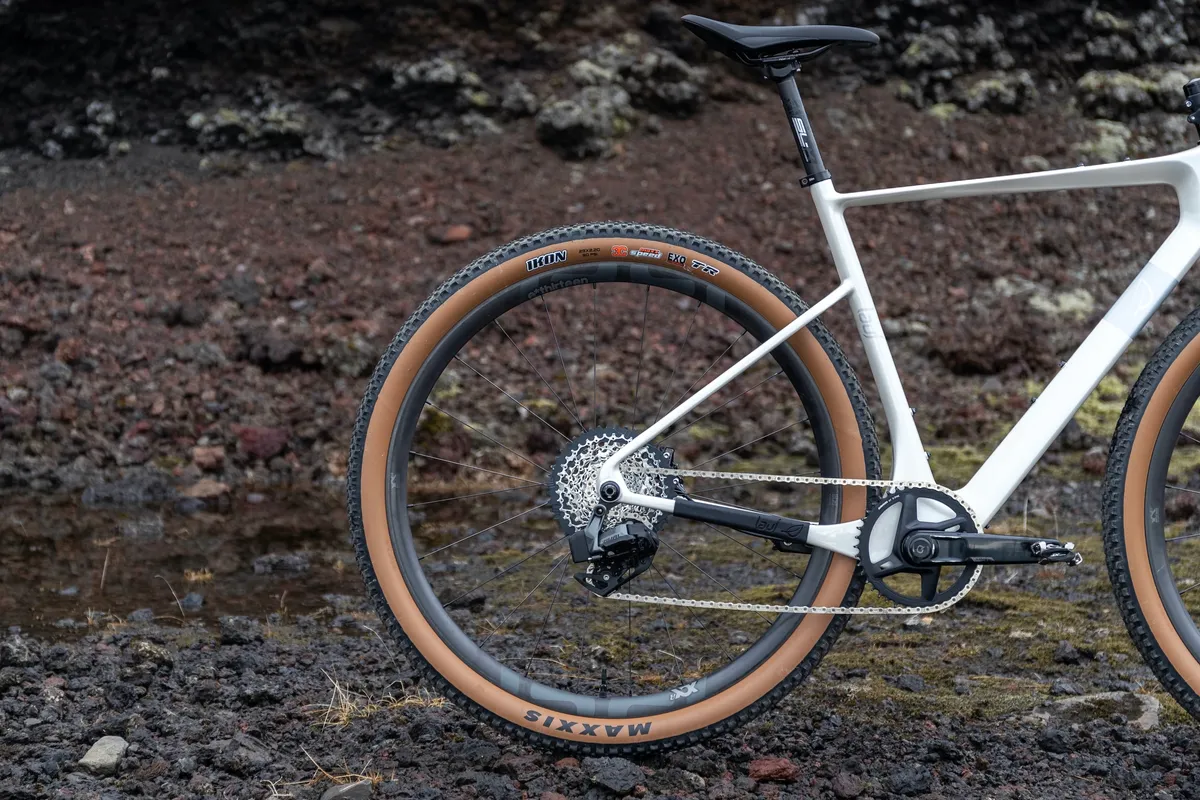
The seatstays then attach to the seat tube much lower down than before. They're thin as you look at them from the side, encouraging flex, but thicker as you look from the top, resisting twist.
As the rear wheel hits a bump and your body weight effectively pushes down on the saddle, the stays push on the seat tube, bowing it inwards slightly.
The junction of top tube and seat tube also had to be reshaped, with the top tube thinning as it approaches the seat tube junction. If it didn’t, the flex would be transferred further down the top tube.
Furthermore, a regular seat clamp is used, because integrated ones require more structure to be built down the seat tube, which may inhibit flex.

Lauf has also given the Seigla a slacker seat tube angle. This increases the effective leverage on the seat tube, increasing its compliance. Seatposts extend roughly 14-20mm more for a given seat height, compared to the True Grit, further increasing compliance.
However, in order to maintain the same geometry as the True Grit (one of Lauf's goals), the effective seat angle, at a representative saddle height, has been maintained at 72.5 degrees.
At full seatpost extension (so the slackest effective seat angle), the angle is 72.4 degrees, while with the seatpost dropped to its lowest, the effective seat angle is 72.6 degrees.
Adding the structures to the frame to allow for this flex has added around 25g to the overall frame weight, bringing it to 1,160g (+/- 15g) for a painted size medium with no rear axle.
Lauf claims that the level of compliance is similar to a Trek Checkpoint with its IsoSpeed decoupler, and slightly less than the Kingpin system on the Cannondale Topstone, because on the Cannondale the seatstays meet the seat tube lower down comparatively.
Compliance, as measured by the saddle-to-rear-axle vertical distance, has increased by three times over the True Grit, to 10mm, and is bolstered by increased tyre volumes too.
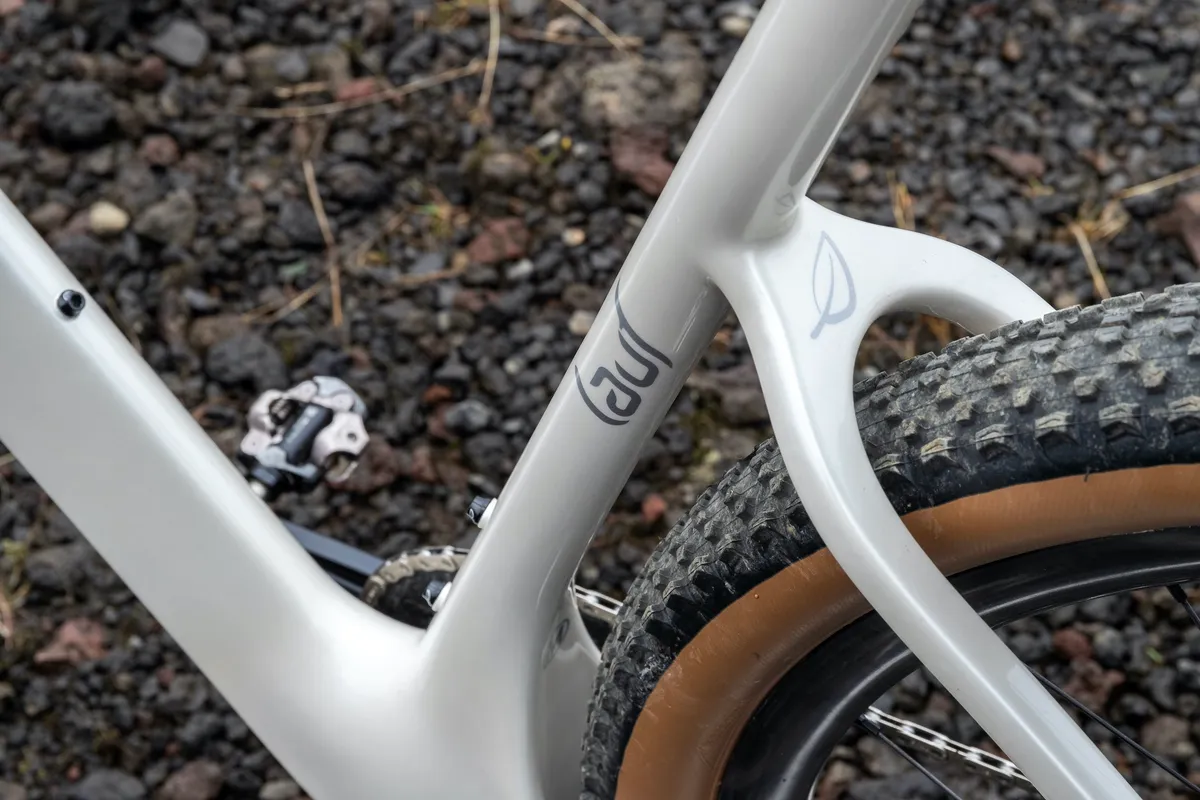
Other smaller frame updates include the use of SRAM’s UDH derailleur hanger.
There’s no official dropper-post routing, though wireless, 27.2mm-diameter posts could be installed easily.
Lauf also says the rear cable routing can be modified, by a professional, according to its instructions. However, we would urge you to contact Lauf before going ahead with any modifications to your frame.
The brand has also altered the way in which the aluminium bottom bracket shell is held in the carbon frame. A sand-blasted alloy blank is cured in place, and is then reamed and threaded, giving a better connection in the frame and more accurate alignment.
Lauf uses a 'normal' carbon fibre for its frames, rather than lighter high-modulus materials. This, it says, is because these lighter carbon layups can be harsher in feel, thanks to the fibres being 'locked in', and they're 2-3x less impact-resistant.
Grit SL updates
The Grit SL fork is one of the defining features of Lauf’s gravel bike. The distinct-looking leaf-sprung suspension fork offers 30mm of travel via a dozen glass-fibre leaf springs.
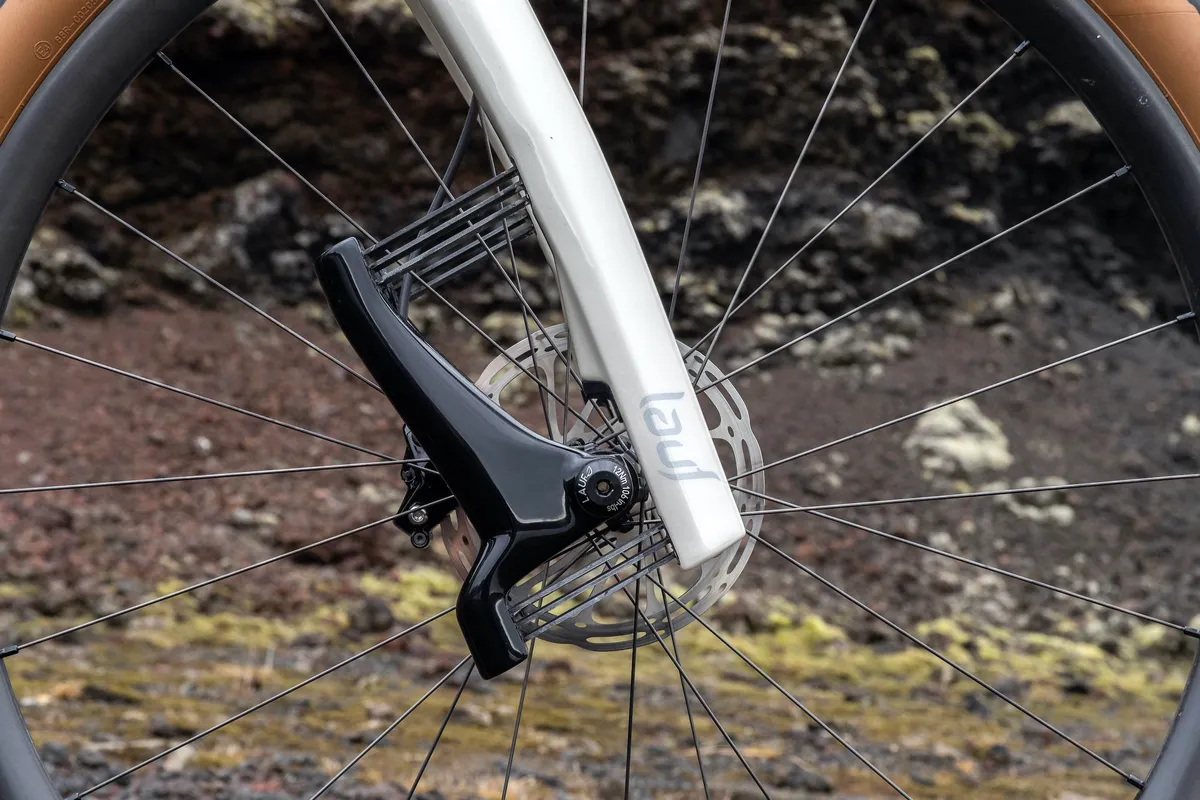
The Grit SL fork has seen minor adjustments to work with wider tyres. This means the axle-to-crown length is 8mm longer than it was before, though Lauf has chopped around 5mm off the head tube length, resulting in 3mm extra stack height.
It has also given the shoulders of the fork a broader form, to prevent the wider tyres buzzing the crown at the limits of the travel.
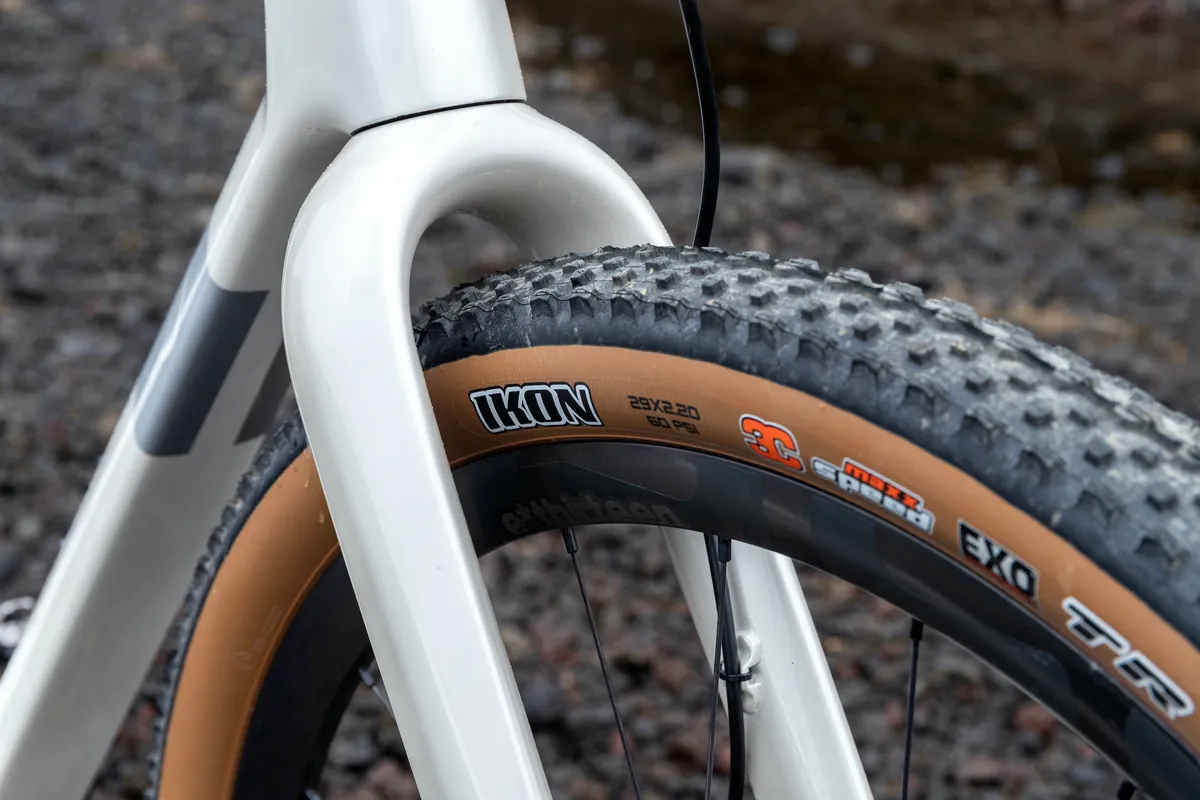
Lauf has also moved to a 12x100mm bolt-through angle, rather than the previous 15x100mm, mirroring general trends in the market, and opening up wheel compatibilities.
Lauf Seigla geometry
Lauf has maintained almost identical geometry from the True Grit. Its geometry concept utilises short chainstays at the rear for quick handling and stiffness, with the front end longer, giving the stability needed on loose surfaces and when riding fast. It's a shape that's been inspired by cross-country mountain bikes.
Lauf Seigla models
Lauf will be offering the Seigla with three builds, based around SRAM’s Rival, Force and Red groupsets, with e*thirteen wheels, FSA finishing kit and its own glass-fibre infused Smoothie handlebar. Bikes will ship with 40c tyres initially, though 45c tyres will follow.
Lauf believes that go-fast gravel bikes are better with 700c or 29in wheels and given the increased tyre clearance for these larger-diameter wheels, 650b options will not be offered.
The bikes will also be offered with a rigid fork, for riders who don’t want the Grit SL fork. This option will cost $350 / £260 / €300 less than the version with a Grit fork.

